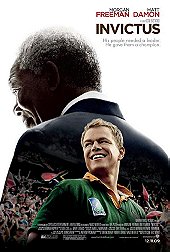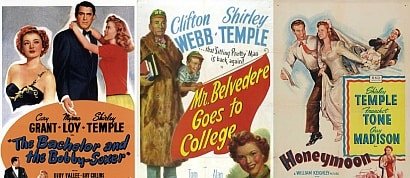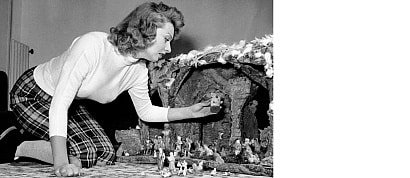At one point during the production of Invictus, Clint Eastwood reached the age of 79. Not that this bothers him, though, as he still shows no signs of stopping. Throughout his autumnal years, the legendary filmmaker has dealt with various themes and genres; ostensibly keen to try anything, and as a result usually achieving both critical and commercial success. 2009's Invictus marks the next addition to the director's filmography, and it's an impressive tour de force which merges the facts of Nelson Mandela's first years as President of South Africa with the tale of the 1995 Rugby World Cup. While the film's outcome has been predetermined by history, Eastwood has nevertheless created a riveting, nail-biting picture that succeeds as both a sports drama and an examination of the birth pains of the racially integrated South Africa. Once again, Eastwood has solidified his reputation as a bold, reliable purveyor of sincere and beautifully-made pictures.

Invictus (Latin for "unconquered") begins with Nelson Mandela (Freeman) assuming the presidency of South Africa after being locked away in prison for decades. While searching for a way to unite his nation still reeling from the effects of apartheid, Mandela's curiosity is piqued by the performance of the national rugby squad: the Springboks. With the team's captain, Francois Pienaar (Damon), attempting to push the Springbok players to victory at the 1995 Rugby World Cup, Mandela motivates and inspires the players; believing the universal language of sport will help heal his beloved South Africa and act as a potential unifying force.
Working from former journalist John Carlin's book Playing the Enemy: Nelson Mandela and the Game That Changed a Nation, Invictus employs the conventions of a traditional underdog sports story in order to shed light on one of the most important international developments of the latter half of the 20th Century. Screenwriter Anthony Peckham (himself a South African) structures the story in a familiar manner; establishing the Springboks as the underdogs as well as portraying them as a flexible metaphor for both shifting race relations and the potential of forgiveness. During the years preceding the 1995 World Cup, the coloured South Africans loathed the Springboks and perceived them as a symbol of oppression, to the extent that they actively rooted against their national team in favour of other squads. Thus, Mandela's decision to use rugby as a platform to unite the country was a key moment of forging a new national identity that had potential to bring together the two races.

Invictus may carry the appearance of a mere rugby movie, but the material strives for something more substantive. Presenting a portrait of Mandela's early years as President of a volatile country which once imprisoned him, Eastwood's movie observes the first big steps of this iconic man as he slips into his official routine and faces a population unsure as to what the integrated future will bring. A movie less sure of itself would've likely been filled with scenes illustrating racial tensions in the most obvious manner conceivable, but not Invictus - Eastwood and Peckham smartly convey this material through conflicts involving two groups of racially different security agents thrown together at Mandela's behest. These scenes depict (in a surprisingly subtle manner) how initial fears and mistrusts on both sides eventually gave way to a certain understanding, while also propelling the story forward instead of killing the pacing. To be sure, not everything works. Though the opening sequence can be appreciated for its brevity, its severe compression of events does affect a viewer's sense of time - it feels as if Mandela was elected within a few weeks rather than years. There are a few underdeveloped subplots too, as well as some clumsy inaccuracies, but these are minor complaints considering the film's myriad strengths.
It's genuinely astonishing that a 79-year-old Clint Eastwood can still create movies of tremendous dynamicity and great scope. Eastwood directed Invictus with a sure hand, and his style is controlled and professional rather than fussy and showy - he realised a remarkable story such as this required little gimmicky flourish. The film particularly springs to life throughout the rugby matches that occupy most of the final 40 minutes or so. Cinematographer Tom Stern's compositions are stunningly elegant, while editors Gary Roach and Joel Cox provide the film with a sublime fluidity. Even though the rules of rugby are not outlined at any point, rugby-ignorant audiences should find these action set-pieces involving, exhilarating and inspirational. They benefit greatly from a powerhouse soundscape and the rollicking, touching score, but are at times marred by the use of slow-motion cameras to capture the aching close moments of possibility.

Another positive of Invictus is Eastwood's skill as an actor's director. No matter how obvious the casting choice of Morgan Freeman as Mandela may be, there's no arguing the subtlety, humour and charm of his performance. He does more than imitate the prolific man - he inhabits and embodies him, and emits a good-natured warmth even in moments as minor as receiving tea from his house servant. The actor was nominated for an Academy Award for his outstanding work. Matt Damon, who was nominated for a Best Supporting Actor Oscar, absolutely nails the South African accent and provides masterful support for Freeman. Damon may be shorter than the 6'4" Pienaar, but his performance is graceful and engaging.
Granted, Invictus never offers a real sense of what Mandela did for South Africa during his presidency, with his policy initiatives only glimpsed at throughout meetings during which he leaves to check on the Springboks. Then again, this type of material is probably best saved for a larger Mandela biopic. Eastwood seized the World Cup championship as a way to convey one aspect of Mandela's greatness, and there is no doubt that Invictus succeeds terrifically on its own terms. The underlying message is positive, there are enough details about the difficulties Mandela faced to portray how divisive this period was in South Africa, and the film culminates in the type of rousing climax a sports movie requires. Whether you perceive it as a biopic, a stirring testament to the human spirit or the 2009 project of one of the best American directors of all time, this is compelling, emotional viewing that's absolutely worth seeing.
8.7/10
 Login
Login












